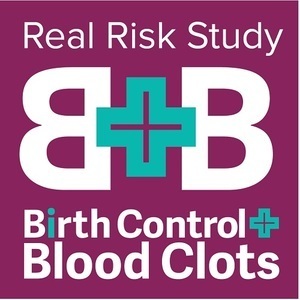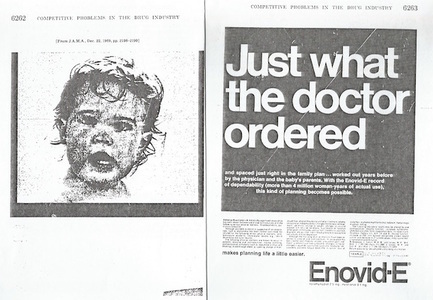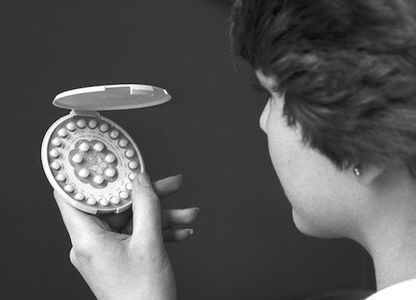I recently read an article about how fewer women are taking birth control pills now. The article claimed:
“The reasons behind the shift are hard to pin down. Study after study has shown the pill is generally safe for most women, and is 99 per cent effective with perfect use. The pill’s safety has only improved since it was introduced in 1960. It is perceptions that are changing.”
This is completely untrue. It wasn’t safe in 1960 and it certainly isn’t any safer now. It’s also not true that study after study has shown it to be safe. At the Nelson Pill Hearings, the 1970 congressional hearings on the safety of the birth control pill, every doctor that testified agreed that more research was necessary. Yet, every modern study I have found (from research on depression, weight gain, diabetes and more) has said that even more research is necessary to make any conclusions. So in the 46 years since, we still don’t adequately understand the risks with hormonal contraceptives. Dr. Paul Meier, who testified at the hearings, spoke about the challenges of conducting said research:
“Of far greater concern to me is the failure of our governmental agencies to exercise their responsibilities in seeing to it that appropriate studies were carried out… Frankly, the required research, although important, is not especially appealing to scientists. It is not fundamental and it is not exciting. It is difficult, it is expensive, and it is fraught with the risk of attack from all sides.
Evidently, for whatever reasons, there is no sound body of scientific studies concerning these possible effects available today, a situation which I regard as scandalous.
If we proceed in the future as we have in the past, we will continue to stumble from one tentative and inadequately supported conclusion to another, always relying on data which come to hand, and which were not designed for the purpose.”
We can see that what Dr. Meier warned against is exactly what has happened. Experts testified in 1970 that the pill was linked to depression and possibly suicide. They warned that the pill should not be given to women with a history of depression. Yet, in 2004 when I was depressed after switching my brand of pill, my doctor told me that wasn’t a side effect. It wasn’t until last month that a European study on hormonal contraception said what no American study has dared. The pill is irrefutably linked to depression.
Unfortunately, depression is only ONE of the side effects of hormonal birth control. Obviously, blood clots are one of the most dangerous and why we are looking at them with this research study. Other side effects that were warned about at the Nelson Pill Hearings but for which the current research claims even more research is necessary include: diabetes, weight gain, cancer, loss of libido, urinary tract and yeast infections, lupus, infertility, hypertension. So no, studies do not actually show that “the pill is generally safe.” What studies show is that there STILL needs to be more research. Well, if they haven’t done it in the past 46 years, when are they going to do it?
As for the pill’s safety improving, just look the increased risk with newer formulations. Third and fourth generation pills have significantly higher risk for deadly blood clots.
“The problems with Yaz and its sister pills stem from drospirenone, a fourth-generation progestin.
After years of blood clot reports, the U.S. Food and Drug Administration (FDA), reviewed studies on oral contraceptives and found that an estimated 10 in 10,000 women on newer pills will experience a blood clot versus 6 in 10,000 with older pills.
Another study conducted by the French National Agency for the Safety of Drugs and Health Products (ANSM) found that birth control pills were linked to more than 2,500 cases of blood clots annually between 2000 and 2011. But third- and fourth-generation pills were responsible for twice as many deaths as earlier pills.
Two studies appeared in the British Medical Journal in 2011 and indicated newer pills were two to three times more likely to cause blood clots.”
Why would the pharmaceutical industry make newer birth control pills that are less safe? Maybe because once the patent runs out on medication they don’t make as much profit. So they change the formula and market it as a new and better pill. As history has shown though, there never seems to be enough research done before these products are approved. And women are paying the price. Dr. Ball warned of this at the Nelson Pill Hearings when he said (page 6500):
“Each time we change the dose or the chemical, you have a whole new ball game statistically, and then a long period of time has to go by for evaluation. Again, is it going to be just this unscientific, hand-out-the-pills-and-see-who-gets-sick business, which I say is wrong and which has been done. Each time there is a new pill, there is a new problem.”
Alas, that’s exactly the business that’s been taking place. Throw in the fact that doctors often dismiss the complaints from women as psychosomatic and you have a recipe for a completely misrepresented medication.
I don’t know about you but I’m tired of being a rube for the pharmaceutical industry. If we want to know what’s really going on with hormonal contraception, we’re going to have to start looking at it ourselves. We can’t wait for the government or the pharmaceutical industry to provide us with perfectly funded, unbiased research. They haven’t done that in the near 50 years since the Nelson Pill Hearings and there’s little indication they are going to start now. That’s why we’re conducting this research ourselves. We need information to help women assess what their REAL RISK is for taking a medication. Not what their doctors are telling them based on studies conducted by the pharmaceutical industry. The aim of this study is not to take away contraceptive options but to provide more accurate information about which women may have more risk for serious side effects like blood clots and which forms of hormonal contraception may be more dangerous than others.
It’s time to take charge of our health and find our own answers. That’s exactly what this research hopes to do but we need your help to do it. Please participate. And please share our study with those you know who might be willing to help. Thank you.
Take Charge: Participate in the Birth Control and Blood Clots Study
Lucine Health Sciences and Hormones Matter are conducting research to investigate the relationship between hormonal birth control and blood clots. If you or a loved one have suffered from a blood clot while using hormonal birth control, please consider participating. We are also looking for participants who have been using hormonal birth control for at least one year and have NOT had a blood clot, as well as women who have NEVER used hormonal birth control. For more information or to participate, click here.






























